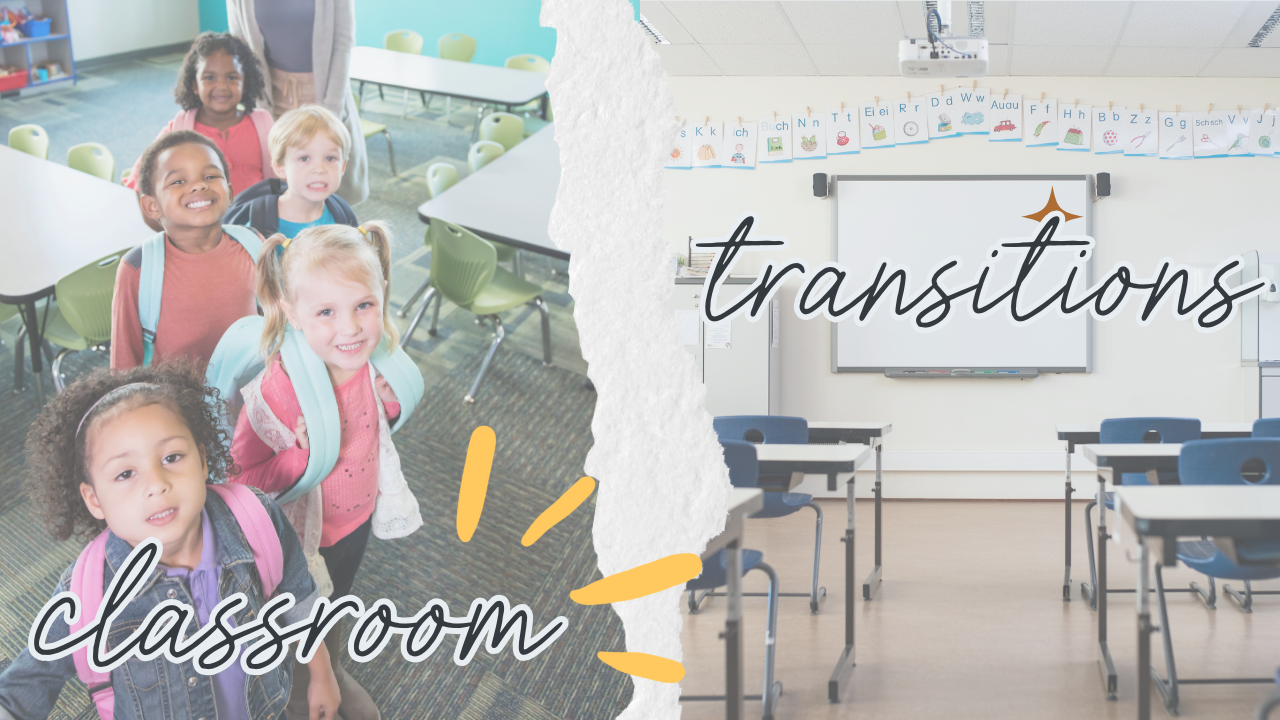The #1 Transition Trick That Transformed My Classroom
Sep 22, 2025
The #1 Transition Trick That Transformed My Classroom
When I first started teaching, I felt like I was constantly repeating myself.
Students were goofing off in line, talking during independent work, and somehow every transition—whether lining up for recess or moving from the carpet to their desks—turned into chaos. It felt impossible to get through a single lesson without stopping to redirect behavior.
Then I learned something that completely changed my perspective: transitions are the number one time of day when disruptive behaviors occur.
That realization was a game-changer. Instead of dreading transitions, I started thinking about how to automate them so students could follow expectations without me constantly talking.
That’s when I stumbled on the strategy that transformed my classroom forever. And today, I’m sharing it with you.
The Secret Revealed: Using Songs for Transitions
The trick? Songs.
Instead of me reminding, correcting, or managing, music set the tone and students knew exactly what to do.
One year, I even had an unannounced observation from both the state and my superintendent. My students transitioned seamlessly from one center to another—without me saying a word—while I kept teaching small groups. That moment was so powerful they later invited me to train substitute teachers on classroom management strategies.
That’s how effective this method can be.
How to Set Up Transition Songs
If you’re ready to try this in your classroom, here’s how to make it work.
Step 1: Identify Your Transitions
First, define what counts as a transition. A transition is any time students move from one activity to another.
Examples include:
- Coming in each morning
- Moving to the carpet for whole group learning
- Returning to desks for independent work
- Lining up for recess, specials, or lunch
- Rotating through centers or stations
- Packing up at the end of the day
Walk through your schedule and make a list of every transition in your day.
Step 2: Choose Your Transition Songs
Pick songs your students will love—and that are appropriate for school. Some great options include:
- Trending movies or shows: Moana 2, Frozen, Inside Out 2
- Instrumental versions of popular songs
- Kid-friendly covers: Kidz Bop or family-friendly edits of popular tracks
Pro Tip: Aim for songs that are short and upbeat. The length of the song should match the time it takes students to complete the transition.
Step 3: Teach Transitions Like Procedures
This step is critical: don’t just play the song—teach what to do when it plays.
Here’s how to model and practice:
- Show students what the transition looks like and sounds like.
- Discuss what it does not look or sound like.
- Explain why it matters and how it helps the class.
- Practice until they can do it successfully.
(Tip: If you want this done-for-you, my Procedure Slides in TPT already walk students through this step by step.)
Step 4: Decide How You’ll Play the Songs
The easiest way is to save your songs in a Google Chrome folder or embed them directly into your daily slides. That way, they’re ready with one click.
Bonus Tip: Assign it as a classroom job! Have your “Helper” or “Timekeeper” press play when it’s time to transition. This keeps you hands-free and empowers students to take ownership.
Step 5: Refresh Songs Regularly
To keep things fresh, switch up your transition songs about once a quarter. You can even let students vote on their favorites to boost buy-in and excitement.
The Power of Musical Transitions
By using transition songs, I went from repeating myself a million times to having students move quickly and quietly—without me saying a word.
Here’s a quick recap of how to make it work for you:
- Use songs during transitions to reduce behavior issues.
- Identify all your transitions throughout the day.
- Pick songs your students love and match them to each moment.
- Teach and practice the routines like any other procedure.
- Change songs out quarterly to keep things fun and fresh.
With this strategy, you’ll not only save your voice, but you’ll also create a smoother, calmer classroom environment.
Next Steps for Teachers
If you want to keep building smooth systems that reduce stress and save time, check out these resources:
- Classroom Management Guide – Your roadmap to consistent and effective management.
- Classroom Management Bundle – All-in-one tools to support your routines and procedures.
- The Present Teacher Circle – Join a community of teachers learning how to thrive without burnout.
